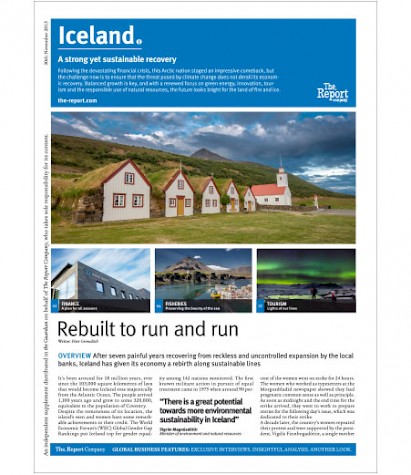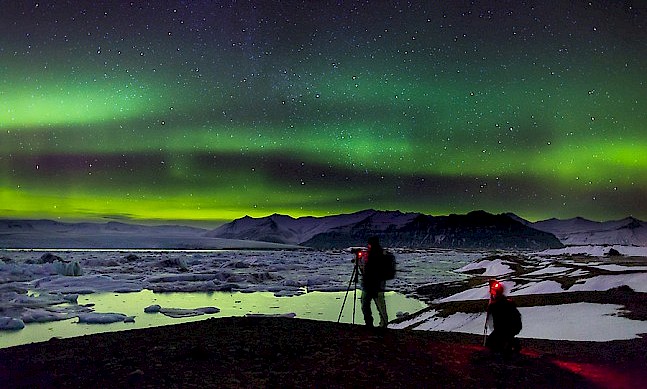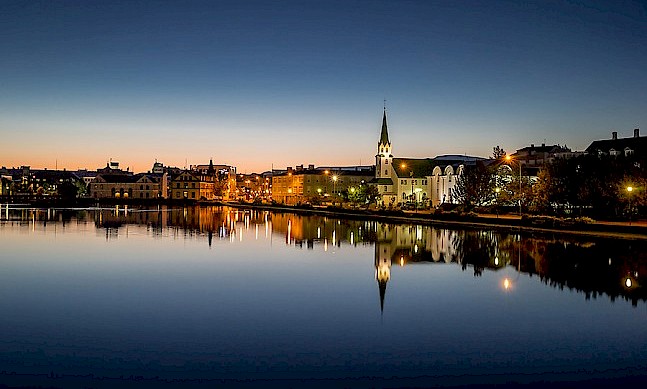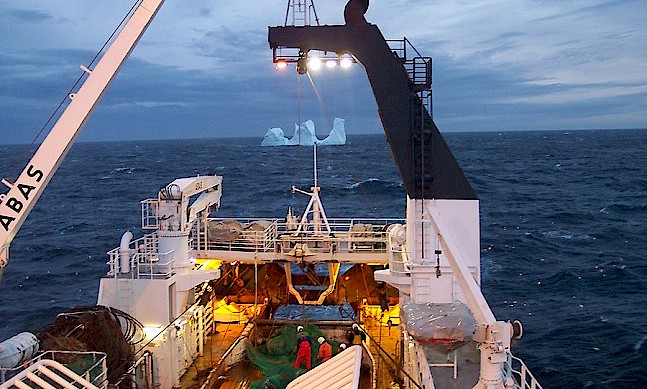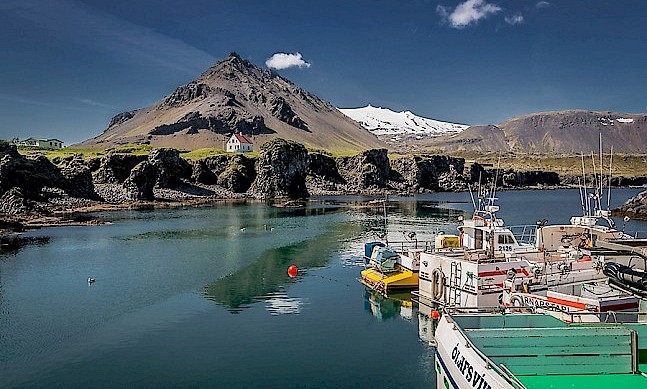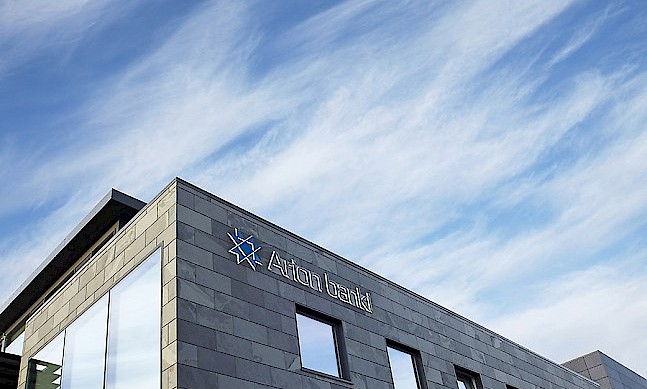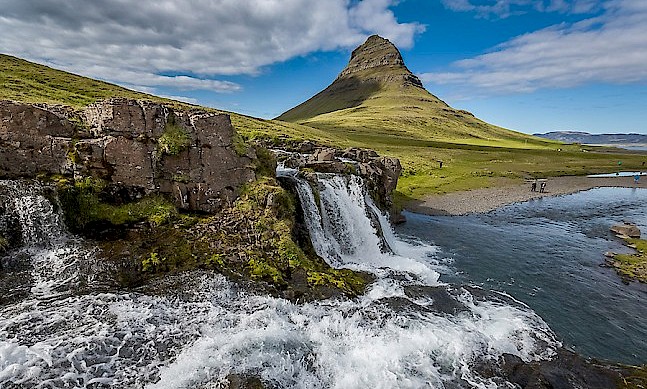South Iceland’s only four-star resort, Hotel Rangá offers a serene, luxurious retreat with superbly uninterrupted views across the rugged rural landscape. Its location makes it one of the best places to view the Northern Lights, and a recently-opened observatory allows guests to take in the night sky, unspoilt by light pollution.
The Report Company: Before becoming owner of Hotel Rangá, you worked for a long time in the fishing industry. How did this experience inform your approach to the tourism industry?
Fridrik Pálsson: My experience from working in the fishing industry taught me that there is nothing as important as the sustainability of your fish stocks. You have to remember that controlled fishing is the key to long-term success. In a way you can say the same about your customers. You have to look at them in the same way. As long as you understand their needs and constantly aim at giving them a first-class service, they will hopefully appreciate your work and become repeat customers, or through word of mouth, become your ambassadors to the wider market out there.
“South Iceland is a tourist diamond in itself. The beauty of the landscape is breath-taking but the variety is definitely what our guests find most interesting”Post This
TRC: What does the surrounding area in South Iceland have to offer tourists, and what would you pinpoint as the major attractions?
FP: South Iceland is a tourist diamond in itself. The beauty of the landscape is breath-taking but the variety is definitely what our guests find most interesting. You may be standing in front of a beautiful waterfall and admiring the rainbow, but then you drive for only 20 minutes through green farmland to the nearest glacier where you take a glacier walk. An hour later you are on your way to a black sand beach which stretches some 300 kilometres along the south coast. Southern Iceland is as diverse as it is inspiring. Hot springs, famous museums, interesting exhibitions and good local restaurants all add to your experience.
TRC: What are the main highlights of Hotel Rangá?
FP: For 30 years I travelled a lot and stayed in numerous hotels for up to 100 days a year. That experience told me that there is nothing as important as the service. The rooms have to be clean and cosy, and you have to find all your necessary amenities there, but you will also want to feel that you are very welcome and that we appreciate your visit and we are happy to have you with us. We try to improve our service every single day.
“Hotel Rangá has a strong name in the market and it is our responsibility to keep up our good work and do something even better tomorrow”Post This
TRC: How do you position Hotel Rangá for weddings and meetings and events tourism?
FP: We are a small hotel and as such try to position ourselves in the market where we feel that our service level is appreciated.
TRC: How competitive is the hotel market in Iceland, and what are Hotel Rangá’s competitive advantages versus other big-name firms such as the Hilton?
FP: I learnt early on that one should, at best, know about the competition but never have it in focus. What matters is that you focus on what you do best. The growth in the business has been so fast that it could be tempting to ease on the service a little for some extra pennies in your pocket, but that would bite you back later. I honestly believe that Hotel Rangá has a strong name in the market and that means it is our responsibility to keep up our good work and do something even better tomorrow.
“To take the winter service to another level, we opened an observatory to view the sky at night. That has turned out to be highly appreciated”Post This
TRC: What impact are you seeing from the increasing number of low-cost operators offering routes from the UK via Iceland to the USA, and what are you doing to market the hotel to visitors who choose to layover in Iceland?
FP: I think it is very important that we aim at getting the tourists to Iceland who are willing and happy to pay for the services we provide them with. We are a small nation but we are very flexible and quick to adapt to changing circumstances. It will no doubt put a big strain on our infrastructure in many ways, but that is just a challenge.
TRC: What are your main objectives for the coming three to five years?
FP: We have been heavily focusing on the winter tourism for the last eight to ten years, especially the aurora borealis, where we have been very successful and we seem to score quite highly by offering the wake up service and in general by taking our job seriously to do our utmost to make our guests happy. To take the winter service to another level, we opened an observatory to view the sky at night. That has turned out to be highly appreciated.


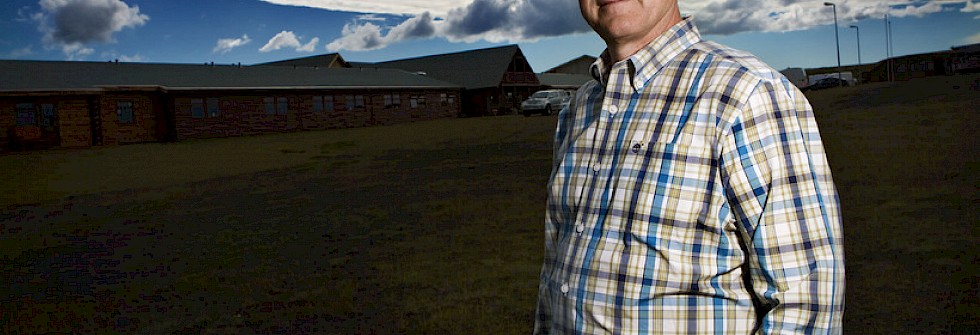 Fridrik Pálsson, Owner of Hotel Rangá. Photo: Hotel Rangá
Fridrik Pálsson, Owner of Hotel Rangá. Photo: Hotel Rangá
